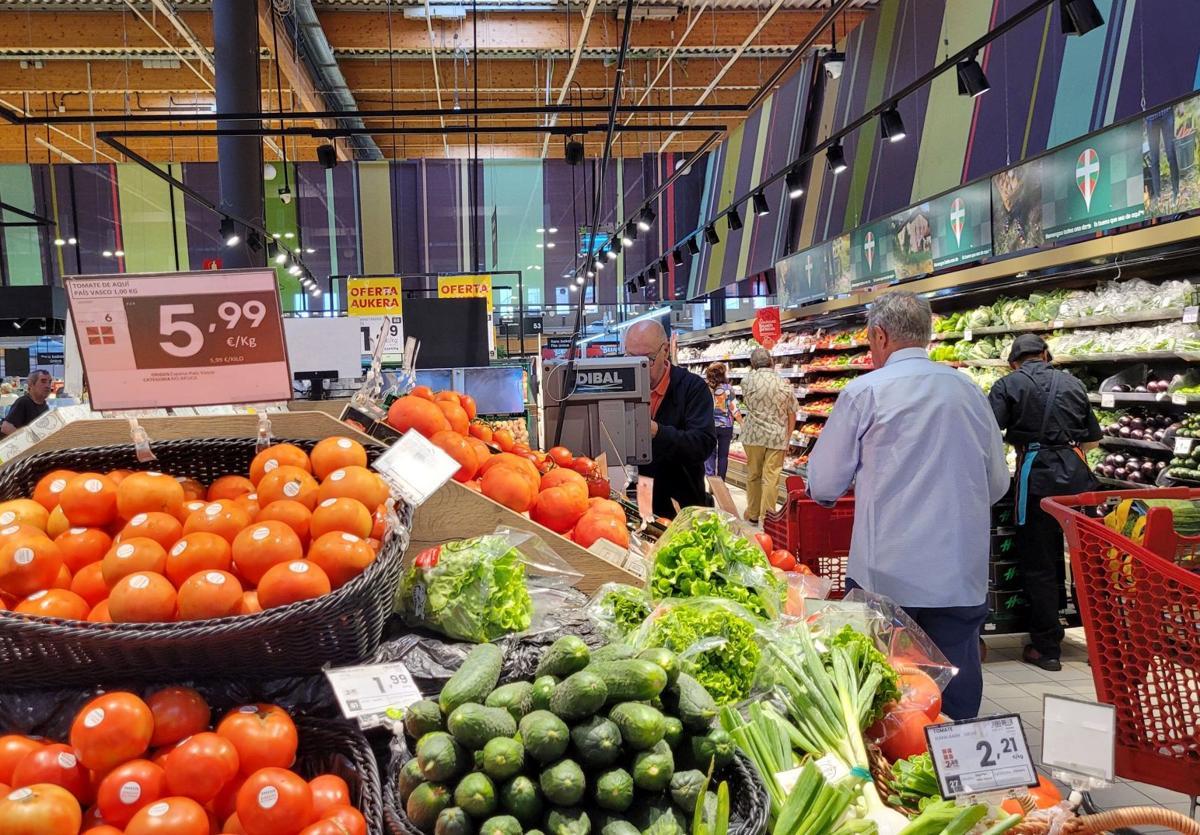

Sections
Highlight

Shopping basket prices in Spain were steadier throughout 2024. The data released on Wednesday by the INE national statistics institute revealed that inflation has dropped back by almost one percentage point since the end of 2023 to 2.8% as of December. Even so, this is four tenths of a percentage point higher than in November due to the rise in the price of electricity and fuel in the last month of the year. Food, however, which had recorded double-digit increases, is now up by only 1.8%, one point below general inflation.
Inflation still falls short of the price target set by the European Central Bank (ECB) of 2%, but it is getting closer. Things are very different from the 8% year-on-year price rises of 2022, with peaks of up to 11% in the midst of the crisis resulting from Russia's invasion of Ukraine in February 2022 and all the subsequent economic fallout.
The increase in inflation was also driven in December by the so-called 'step effect', the name given to the significant drop in inflation in December 2023 that is not representative of the here and now.
The biggest rise in December compared to a year ago was chocolate - 24% more expensive than 12 months previously. Package holidays also rose by more than 20%, followed by electricity (19%) and maritime passenger transport (13%). The fall in the food inflation rate is due to the reduction in the price of olive oil, which, after increases of up to 70% in previous months, fell by 12% in December.
Even so, on annual average, what rose most in price was olive oil, 32% higher than the average for 2023. Also juices (16% higher on annual average), package tours (16%) and chocolate (15%).
Eurozone inflation also picked up in December, prompting the ECB to measure its next moves down to the finest details. According to provisional data from Eurostat (the EU's statistics provider), the eurozone's CPI (consumer price index) accelerated to 2.4% in December, two tenths of a percentage point more than the previous month's reading and the biggest rise in prices since last July. This is four tenths of a percentage point less than the figure for Spain.
This is also the third consecutive month in which prices have risen, with an increase of 0.1% in the cost of energy - its first increase since July - compared with the 2% year-on-year fall experienced in November. Similarly, the price of fresh food continues to rise, albeit more moderately. Specifically, in December this item rose by 1.7% year-on-year, less than the rise of 2.3% in the previous month, but still rising.
Publicidad
Publicidad
Publicidad
Publicidad
Esta funcionalidad es exclusiva para registrados.
Reporta un error en esta noticia

Debido a un error no hemos podido dar de alta tu suscripción.
Por favor, ponte en contacto con Atención al Cliente.

¡Bienvenido a SURINENGLISH!

Tu suscripción con Google se ha realizado correctamente, pero ya tenías otra suscripción activa en SURINENGLISH.
Déjanos tus datos y nos pondremos en contacto contigo para analizar tu caso

¡Tu suscripción con Google se ha realizado correctamente!
La compra se ha asociado al siguiente email
Comentar es una ventaja exclusiva para registrados
¿Ya eres registrado?
Inicia sesiónNecesitas ser suscriptor para poder votar.